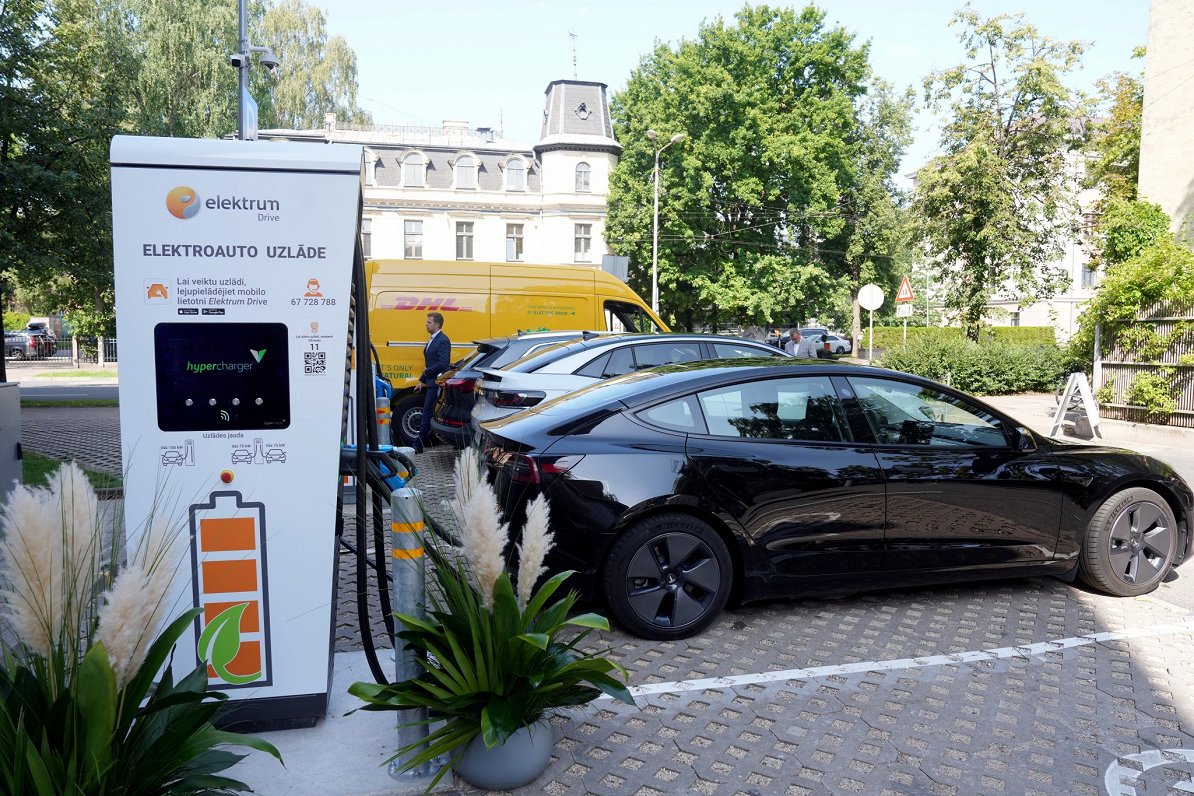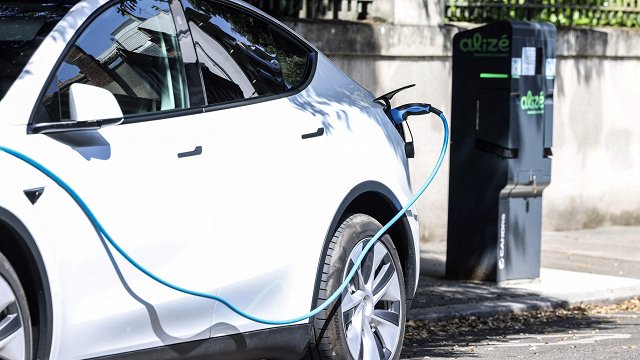Nearly 4,500 electric vehicles are currently registered in Latvia. Of these, 4,361 are cars and 134 are trucks, said Aivis Ozoliņš, electrical mobility specialist at the Road Traffic Safety Directorate (CSDD). The number of electric cars in Latvia is growing every year.
"Last year, 1,767 cars were registered [in addition] in Latvia, an increase of 81%. The rise was 75% in 2021, respectively. And in the first quarter of this year, there are already 554 electric cars [registered], a 40% increase", Ozoliņš said.
The electrical mobility specialist is convinced that the availability of charging points for electric cars goes hand in hand with the dynamics of the increase in the number of electric vehicles. The CSDD has developed the “e-mobi” charging network with 140 stations deployed throughout Latvia so that every 50 kilometers there is a possibility to charge an electric vehicle.
"In addition to this, Electrum Drive's charging network with more than 50 public electric-car charging sites has also been operating since 2019. Eleport charging network with more than 10 charging stations is also opeating. Electric car charging facilities are also provided by separate malls and supermarkets.
"We have not seen queues while studying the load of our charging networks, so we believe that the number of charging networks is optimal. Of course, the number of charging points needs to increase along with an increase in the number of electric vehicles. We already see that the private sector is also involved in the development of the electric car charging network, where the development is mainly driven by demand and competition," said the CSDD electrical mobility specialist.
Although the number of electric vehicles is nearly doubling every year in recent years, still a small proportion of drivers choose these types of vehicles in Latvia, said Ansis Valdovskis, director of the charging network for Latvenergo Baltic electric transport.
"We are still talking about the number at 1% or even below 1% of the total number of cars in Latvia.
"By 2030, we are predicting that there will be at least 60 thousand electric cars, perhaps even more. This is about 10% of the total Latvian car park. This rapid development will only progress, because if we look at the decisions taken in Europe, then internal combustion vehicles are at an end [of production in the industry] because legislation in Europe provides that by 2035, zero-emission vehicles are the only ones that can be produced and registered as new in the European Union. Fossil fuel vehicles will not be further developed," Valdovskis said.
The Latvenergo representative stated that Latvia has been successful with the development of the electric car charging network so far and that a good step was the project implemented by the CSDD.
"We're in a different situation right now. There are also merchants, like us, who have started their activities in developing the charging network since 2019 and have built more than 200 connection sites over those years. We plan to build up to 500 sites by the end of the year, including Lithuania and Estonia. If we look from a user's point of view who plans to purchase an electric vehicle, then this charging network is wide enough. If we compare the number of cars to the number of charging places, I would say that the situation is positive and the network is slightly bigger than the number of cars," Valdovskis said.
However, an analyst at Enefit's Department of Business Development, Daniels Treņins, believes Latvia still has room for growth. Although the dynamics of the number of electric vehicles have been more rapid than ever in the last two years, he believes that the development of the charging network is still slow.
"There are very good examples from other European countries. In the Netherlands, for example, there are four cars per charging point. In Latvia, where there are about 400 charging points, there are 11 cars per point. It is almost three times worse than in the Netherlands.
"We have been far behind in terms of development, but that means there is room to grow, there is room for expression. Enefit, too, are planning to invest in developing the charging network," Treņins said.
"Four companies are currently participating in Latvia, not counting ul – both electricity companies and private companies which are solely involved in the development of electric charging networks," said Treņins.





























